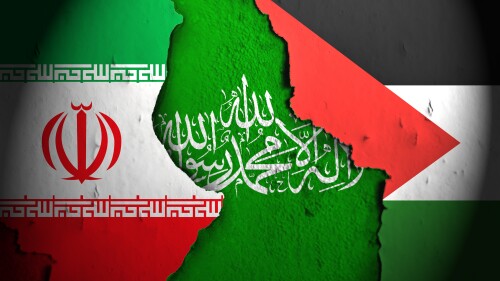Yasir Arafat may have shaken Yitzhak Rabin’s hand in 1993 and signed solemn declarations about ending the war to eliminate Israel, but late last month, in a New York City courtroom, the Palestine Liberation Organization formally confirmed that it still sees terrorism against Israelis as legitimate acts of war.
The lawsuit, Sokolow v The Palestine Liberation Organization, brought by the intrepid David Strachman, alleges that the PLO carried out two machine-gun and five bombing attacks in the Jerusalem area between January 2001 and February 2004. The plaintiffs allege, in the words of U.S. District Judge George Daniels, that the PLO did so “intending to terrorize, intimidate, and coerce the civilian population of Israel into acquiescing to defendants’ political goals and demands, and to influence the policy of the United States and Israeli governments in favor of accepting defendants’ political goals and demands.” The attacks killed 33 and wounded many more, some of them U.S. citizens; the victims and their families are seeking up to US$3 billion in damages from the PLO.
To this, the PLO, represented in part by none other than the appalling Ramsey Clark (who in a distant age, 1967-69, was attorney general of the United States), replied that the attacks were acts of war rather than terrorism. As Daniels summarizes the PLO argument: “defendants argue that subject matter jurisdiction is lacking because this action is premised on acts of war, which is barred under the ATA [Antiterrorism Act of 1991], and further is based on conduct which does not meet the statutory definition of ‘international terrorism’.”
This response is noteworthy for two reasons: (1) Fifteen years after Oslo supposedly ended the state of war, four years after Mahmoud Abbas took over and supposedly improved on Arafat’s abysmal record, the PLO publicly maintains it remains at war with Israel. (2) The PLO argues, even in the context of an American law court, that blatant, cruel, inhumane, and atrocious acts of murder constitute legitimate acts of warfare.
Judge Daniels rightly slammed the PLO’s argument: “the Court finds that the attacks, as alleged to have occurred in the amended complaint, do not constitute acts of war nor do they, as a matter of law, fall outside the statutory definition of ‘international terrorism’.” He went on to point out that civilians, not soldiers were the intended victims of these assaults:
Daniels went on, rising to an eloquence not frequently heard in district court decisions:
Additionally, the use of bombs, under such circumstances, is indicative of an intent to cause far-reaching devastation upon the masses. The “benefit” of such weaponry is its merciless capability of indiscriminately killing and maiming untold numbers in heavily populated civilian areas. Such claimed violent attacks upon non-combatant civilians, who were allegedly simply going about their everyday lives, do not constitute acts of war.
When will the diplomatic bright lights in Jerusalem and Washington figure this out?







